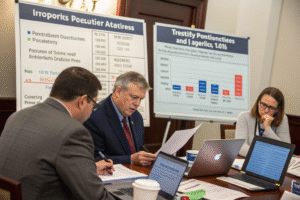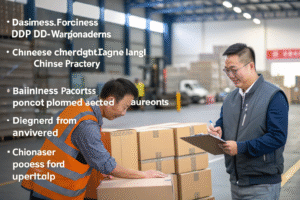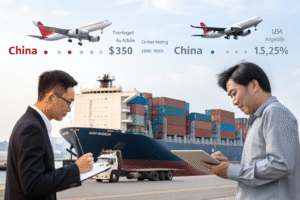Finding a reliable freight forwarder in China can feel overwhelming, especially when you're entrusting them with your valuable shipments and customer relationships. The market is crowded with options ranging from global giants to local specialists, but not all deliver on their promises. The consequences of choosing the wrong partner can be costly delays, damaged goods, or unexpected charges that erode your profit margins.
You find a trustworthy freight forwarder in China by verifying their licenses and certifications, checking their operational experience with your specific trade lanes, reviewing client testimonials, and assessing their communication transparency. A reliable partner will openly share their processes, provide clear pricing, and demonstrate expertise in both Chinese export procedures and your destination country's import requirements.
Let's explore the specific steps and criteria that will help you identify a freight forwarder who will protect your interests and ensure your shipments move smoothly from China to your destination.
What certifications and licenses should you verify?
Professional certifications provide the first indicator of a freight forwarder's legitimacy and commitment to industry standards. In China's sometimes opaque logistics market, these credentials separate established professionals from potentially unreliable operators.
The most important certification to verify is the NVOCC (Non-Vessel Operating Common Carrier) license, which allows the company to issue their own bills of lading and operate as ocean freight carriers. Additionally, look for FIATA membership, which indicates adherence to international standards, and WCA network participation, which provides global agency connections. For air freight, IATA accreditation is crucial. These certifications demonstrate that the forwarder meets recognized industry standards and has the legal authority to handle international shipments properly.
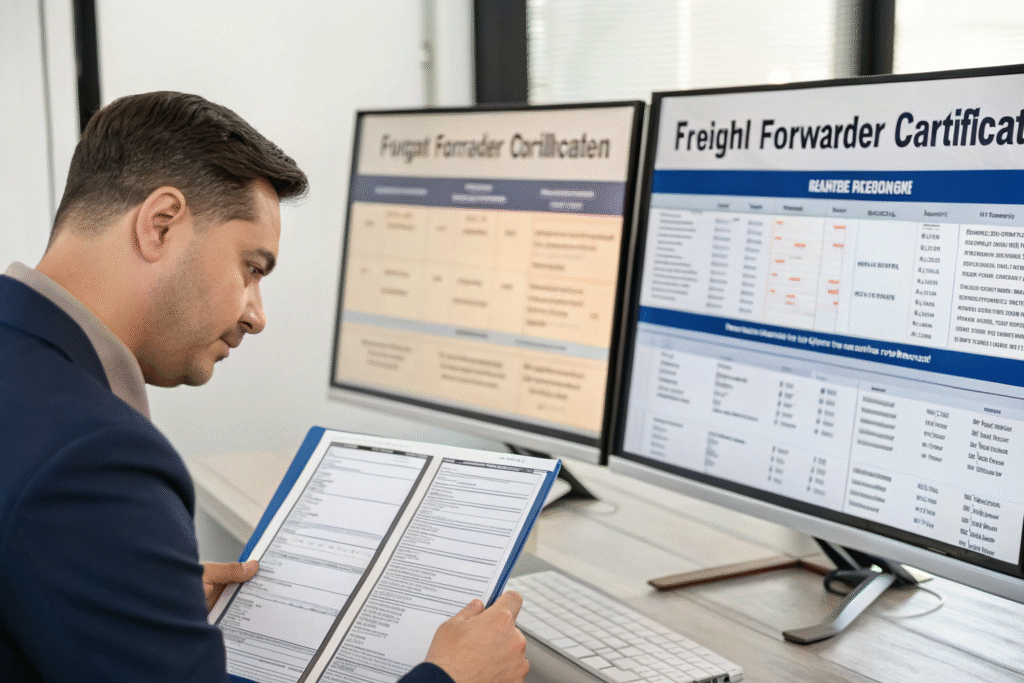
Why is NVOCC license verification crucial?
The NVOCC license is particularly important because:
- It's government-issued by relevant maritime authorities
- It requires financial guarantees protecting clients against losses
- It enables legal operation as an international carrier
- It ensures compliance with shipping regulations
- It provides recourse through official channels if issues arise
Always ask for the NVOCC license number and verify its status through official channels rather than relying on scanned copies alone.
What other credentials indicate reliability?
Beyond the essential licenses, these certifications signal quality:
- ISO quality management certifications demonstrating process standardization
- C-TPAT certification for US-bound shipments showing security compliance
- Trade association memberships indicating industry engagement
- Environmental and safety certifications reflecting operational responsibility
- Technology security certifications protecting your data and systems
While not all these are mandatory, they indicate a forwarder's commitment to professional standards beyond basic requirements.
How can you assess their China-specific operational expertise?
A freight forwarder may have impressive global credentials but lack the specific China expertise needed to navigate local challenges effectively. China's logistics landscape has unique characteristics that require specialized knowledge and relationships.
Look for evidence of strong relationships with Chinese factories, knowledge of specific port procedures (Shanghai, Ningbo, Shenzhen, etc.), understanding of Chinese export regulations and documentation requirements, and established processes for quality control and factory collections. The ideal partner should have Chinese-speaking staff in key operational roles and demonstrate familiarity with the industrial regions where your suppliers are located. This local expertise prevents delays and misunderstandings that can occur when working with forwarders who treat China as just another origin point.
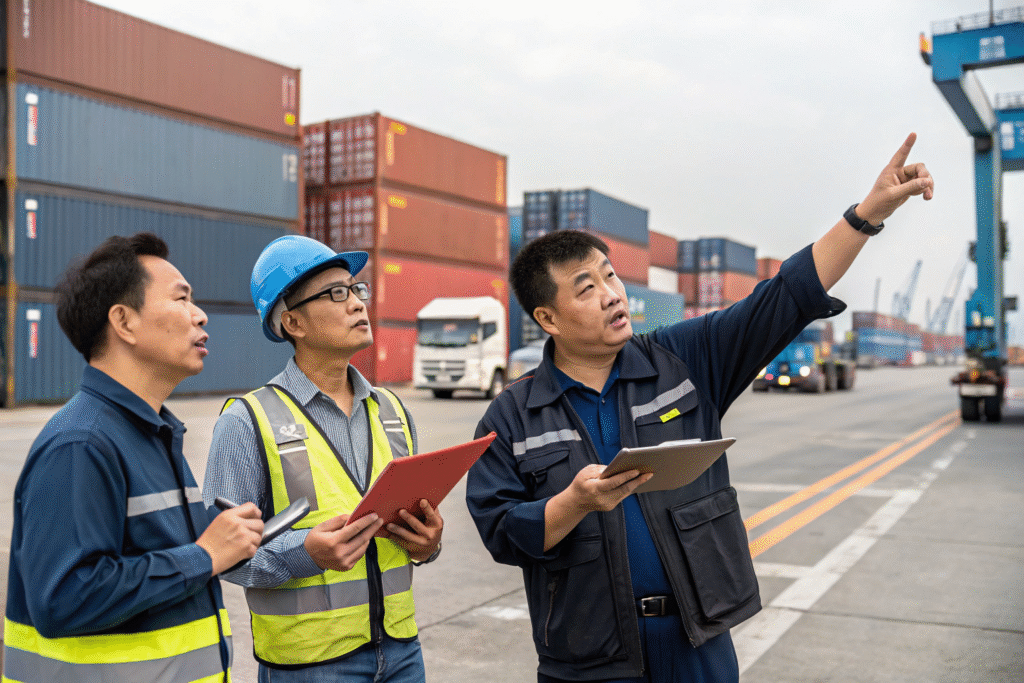
What questions reveal China operational knowledge?
Ask potential forwarders these specific questions:
- How do you handle factory collections from [your supplier's city]?
- What's your process for verifying Chinese export documentation accuracy?
- How do you manage relationships with Chinese customs authorities?
- What's your contingency plan for Chinese holiday periods like Golden Week?
- How do you communicate with Chinese suppliers who don't speak English?
Their answers will reveal whether they have practical China experience or are merely reselling services from local partners.
Why are Chinese port relationships important?
Strong relationships at key Chinese ports provide significant advantages:
- Priority berthing during congested periods
- Faster container handling and documentation processing
- Better information access about schedule changes
- Problem resolution leverage when issues occur
- Equipment availability during peak seasons
These relationships can mean the difference between your shipment making its intended vessel or being rolled to a later sailing.
What due diligence should you perform beyond references?
While client references are valuable, they represent curated relationships. Comprehensive due diligence requires investigating multiple aspects of the forwarder's operations, financial stability, and market reputation to form a complete picture of their reliability.
Check their business registration and operating history, verify their financial stability through credit reporting services, search for legal disputes or complaints, analyze their online presence and customer reviews across multiple platforms, and request case studies specific to your industry and shipping lanes. This multi-faceted investigation helps identify potential red flags that might not surface through reference checks alone. A forwarder with nothing to hide will welcome this scrutiny and provide the information you need comfortably.

How can you verify their financial stability?
Financial verification is crucial because:
- It ensures they can pay carriers preventing shipment holds
- It indicates business longevity reducing partner turnover risk
- It confirms they maintain adequate insurance protecting your cargo
- It demonstrates responsible management suggesting operational reliability
- It provides assurance they'll honor commitments during market fluctuations
Request financial statements or credit reports, and be wary of forwarders who resist this reasonable request.
What online resources provide unbiased information?
Beyond the forwarder's own website, consult:
- Industry forums where logistics professionals share experiences
- Regulatory databases containing license and complaint information
- Business credit platforms showing financial health indicators
- Social media channels revealing customer interaction quality
- Multiple review platforms providing balanced feedback perspectives
This broader research helps counterbalance potentially curated reference lists.
How important is communication style and transparency?
The quality of communication often determines shipping success more than technical expertise alone. A forwarder might have excellent operational capabilities but poor communication habits that create frustration and uncertainty throughout the shipping process.
Evaluate their responsiveness during the sales process, clarity in explaining complex requirements, transparency about potential challenges and costs, availability outside standard Chinese business hours, and language proficiency of key account staff. The right partner will communicate proactively rather than reactively, provide regular updates without requiring you to chase information, and explain issues in clear business terms rather than hiding behind industry jargon. This communication quality is especially important when working across time zones and language barriers.

What communication red flags should you watch for?
Be cautious of forwarders who:
- Avoid direct answers to specific operational questions
- Provide vague cost estimates rather than detailed breakdowns
- Have inconsistent response times during the evaluation process
- Use excessive industry jargon without clear explanations
- Can't provide a dedicated contact person for your account
These communication patterns often indicate deeper operational issues or lack of transparency.
How can you test their communication effectiveness?
During the evaluation process:
- Ask technical questions and assess explanation clarity
- Request information outside business hours checking response time
- Propose a complex scenario evaluating their problem-solving approach
- Check if they acknowledge what they don't know rather than bluffing
- Notice if they follow up without prompting
These tests reveal their true communication habits beyond sales presentations.
Conclusion
Finding a trustworthy freight forwarder in China requires systematic evaluation of their credentials, China-specific expertise, financial stability, and communication transparency. While the process demands time and due diligence, the investment pays significant dividends through reliable shipments, cost predictability, and reduced stress. The ideal partner will demonstrate professional certifications, practical China operational knowledge, financial health, and clear communication practices. By thoroughly vetting potential forwarders against these criteria, you can establish a partnership that supports your business growth rather than creating logistical challenges. Remember that the cheapest option often proves most expensive when shipments are delayed or damaged, making trustworthiness more valuable than marginal cost savings.



